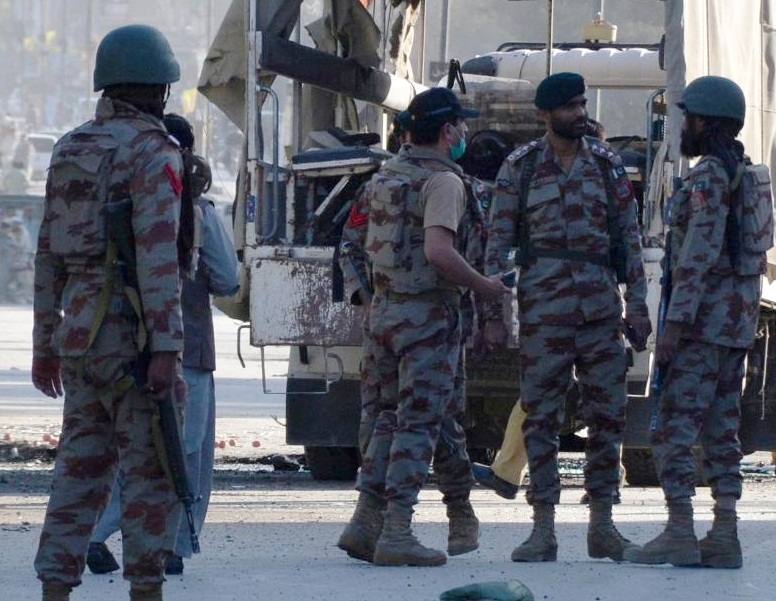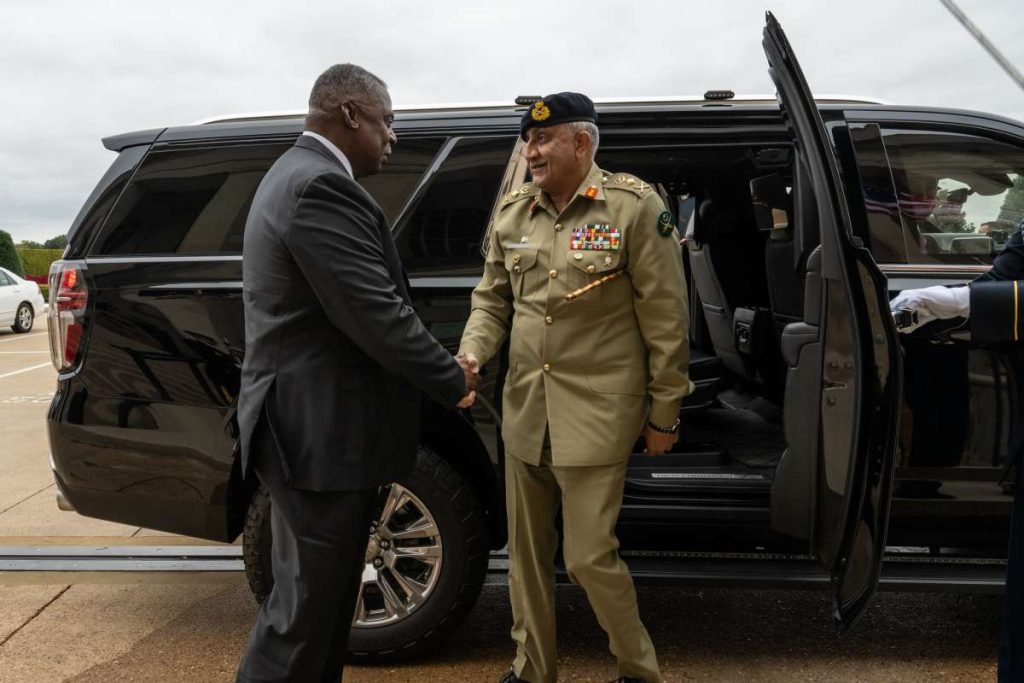Close to 9,000 Pakistani security forces and more than twice as many civilians died in terror and extremist violence since 2001. These deaths, however, are not a direct result of United States foreign policy or terrorism thrust on Pakistan by its neighbours, but rather the result of deliberate decisions and actions by Pakistan’s Inter-State Intelligence (ISI) service as well as several key presidents and prime ministers … writes Dr. Michael Rubin
Speaking at a forum in Uzbekistan last month, Pakistani Prime Minister Shehbaz Sharif declared, “Pakistan has been a victim of terrorism. I don’t have to go into its history. But suffice it to say that we have made huge sacrifices to defeat the monster of terrorism. Thousands of Pakistanis were martyred – brothers, sisters, mothers.”
Sharif’s statement is boilerplate. That Pakistan is a victim of the war on terror is a frequent talking point of Pakistan officials, diplomats, and those within the U.S. government who want to maintain normal relations with a state guilty of sheltering Al Qaeda and sponsoring an insurgency that cost hundreds of American lives.

Certainly, Pakistani police and soldiers have died at the hands of radicals. In 2019, Brown University’s Watson Institute for International and Public Affairs reported that close to 9,000 Pakistani security forces and more than twice as many civilians died in terror and extremist violence since 2001.
These deaths, however, are not a direct result of United States foreign policy or terrorism thrust on Pakistan by its neighbours, but rather the result of deliberate decisions and actions by Pakistan’s Inter-State Intelligence (ISI) service as well as several key presidents and prime ministers.
The roots of Pakistani Islamisation date back to the independence of Bangladesh. After Pakistan lost what until then it governed as “East Pakistan,” the Pakistani military concluded it needed a religious identity to trump ethnic identity, lest the latter became a hook for additional separatism. That extremism gained in infrastructure under General Zia ul-Haq, who seized power on July 5, 1977. As long-time Indian ambassador Dinkar P. Srivastava wrote in Forgotten Kashmir, “Though the trouble in Kashmir erupted later, Zia had created the ecosystem of extremist philosophy, madrasas and training camps for terrorist activities.”
Zia and his successors soon took the next step and embraced terrorist groups as a potent tool to advance Pakistan’s agenda. In his 2011 book Afghanistan and Pakistan—Conflict, Extremism, and Resistance to Modernity, for example, Riaz Mohammad Khan, Pakistan’s foreign secretary between 2005 and 2008, described Harakat-ul-Mujahideen, Lashkar-e-Taiba, and later Jaish-e-Muhammad as the “main supporters of the Kashmir militancy in Pakistan at the early stages.”
The wildfire grew quickly and did not limit itself to Kashmir. Just as Pakistan utilized its position as the doorway to Afghanistan to empower Afghan Islamists after the Soviet invasion, so too did it cultivate and coddle the Taliban. Jaish-e-Muhammad attacked the Indian parliament in December 2001 and Lashkar-e-Taiba carried out the Mumbai attacks seven years later. Pakistanis celebrated the leaders of both groups.
While Pakistani apologists justify terrorism in the Kashmir dispute, neither the targets nor the group leaders were Kashmiri. Essentially, the terrorists were agents of the state, protected by the state both before and, in the case of perpetrators who escaped or returned to Pakistan, after the operations as well. There is no one better to chronicle Pakistan’s strategy and the growth of Pakistani militancy than scholar and diplomat Husain Haqqani. His book, Pakistan: Between Mosque and Military, is the fundamental text of the field.

Pakistani authorities continued to transform their territory into a strategic depth for the Taliban and sought to accommodate Taliban groups on the Pakistani side of the Durand Line. Here, Ashok Behuria’s excellent study Tehrik-e-Taliban Pakistan: Origin, Evolution and Future Portents is instructive. Suffice it to say, accommodating the Taliban in Waziristan backfired tremendously. Scores of Pakistani soldiers died because of the ISI’s extremist strategy and its incompetent belief that it could control the fire.
In a May 2022 Foreign Affairs essay, Haqqani describes how Pakistan’s support for the Taliban has come back to bite them. The Taliban’s victory in Afghanistan has only galvanized Pakistani extremists.
It may sound unfair and even callous to blame Pakistan for the injuries and deaths its soldiers suffered due to terrorism or extremist violence. After all, terrorists have agency, and victims are innocent. Americans reacted with opprobrium when, after the September 11, 2001 terror attacks, some commentators sought to blame the victim suggesting that anger at American foreign policy somehow justified the attacks.
The Pakistan situation is not analogous, though, as the terrorists exist not in reaction to a foreign policy but rather as a deliberate decision by Pakistan’s own internal security apparatus. The reality is that Sharif’s demand for sympathy and his efforts to win diplomatic sympathy for Pakistani soldiers and civilians killed by terrorists inside Pakistan fall flat until he and other political leaders are willing to acknowledge the ISI’s direct responsibility. Pakistan does not deserve F-16 upgrades or, indeed, any other military assistance until it can overcome the ISI stranglehold on policy and hold the current and former ISI chiefs personally accountable for the murders their favored terrorists committed on their watch.
Now a 1945 Contributing Editor, Dr. Michael Rubin is a Senior Fellow at the American Enterprise Institute (AEI). Dr. Rubin is the author, coauthor, and coeditor of several books exploring diplomacy, Iranian history, Arab culture, Kurdish studies, and Shi’ite politics, including “Seven Pillars: What Really Causes Instability in the Middle East?” (AEI Press, 2019); “Kurdistan Rising” (AEI Press, 2016); “Dancing with the Devil: The Perils of Engaging Rogue Regimes” (Encounter Books, 2014); and “Eternal Iran: Continuity and Chaos” (Palgrave, 2005).
(Dr. Michael Rubin is a Senior Fellow at the American Enterprise Institute (AEI). Dr. Rubin is the author, co-author, and co-editor of several books exploring diplomacy, Iranian history, Arab culture, Kurdish studies, and Shi’ite politics, including “Seven Pillars: What Really Causes Instability in the Middle East?” (AEI Press, 2019); “Kurdistan Rising” (AEI Press, 2016); “Dancing with the Devil: The Perils of Engaging Rogue Regimes” (Encounter Books, 2014); and “Eternal Iran: Continuity and Chaos” (Palgrave, 2005).












